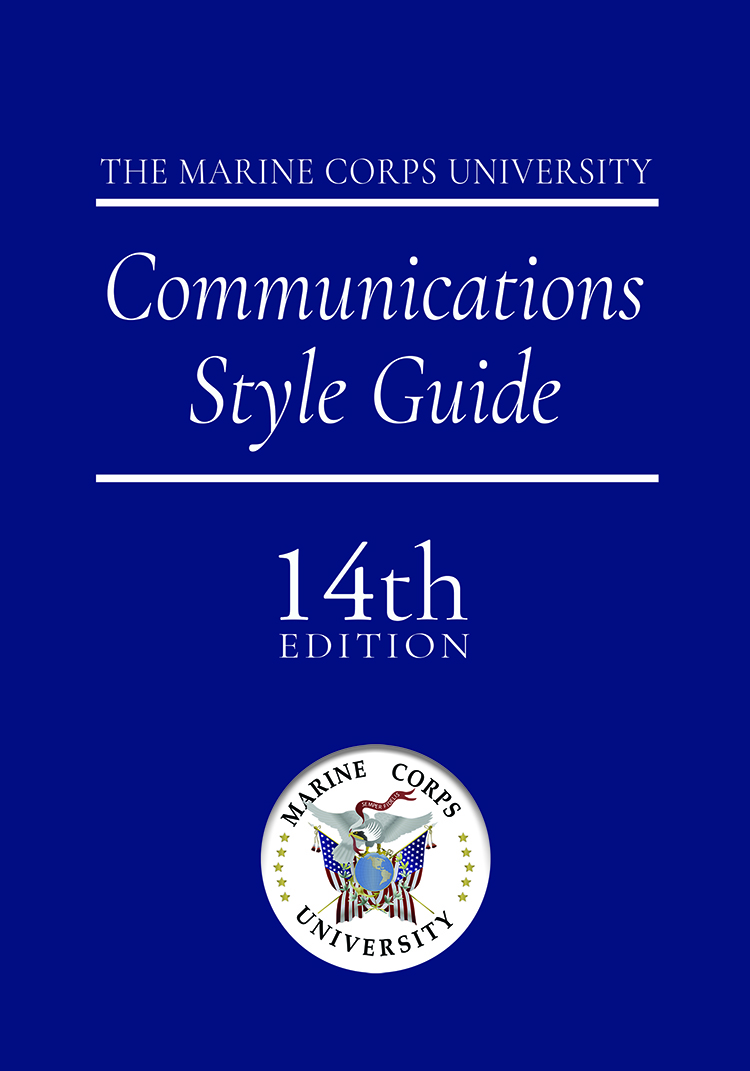
 The Marine Corps University Communications Style Guide by
"The 14th edition of the Marine Corps University Communications Style Guide establishes a consistent style of writing adapted from The Chicago Manual of Style (CMOS), 17th edition. In the guide, you will find information regarding CMOS citation practices, grammar and punctuation rules, and appropriate formatting of charts, graphs, and tables. This condensed, user-friendly reference also provides you with guidance on the use of civilian academic and professional military styles in research and writing, which makes the guide an asset to students and faculty university-wide"--
The Marine Corps University Communications Style Guide by
"The 14th edition of the Marine Corps University Communications Style Guide establishes a consistent style of writing adapted from The Chicago Manual of Style (CMOS), 17th edition. In the guide, you will find information regarding CMOS citation practices, grammar and punctuation rules, and appropriate formatting of charts, graphs, and tables. This condensed, user-friendly reference also provides you with guidance on the use of civilian academic and professional military styles in research and writing, which makes the guide an asset to students and faculty university-wide"--
This guide outlines the steps in the research process from developing a topic to crediting sources:
Not finding enough information? Is your topic too specific? Consider these approaches:
Is your topic too broad? Too much many resources? Make your results list more manageable and relevant
Here are some ideas